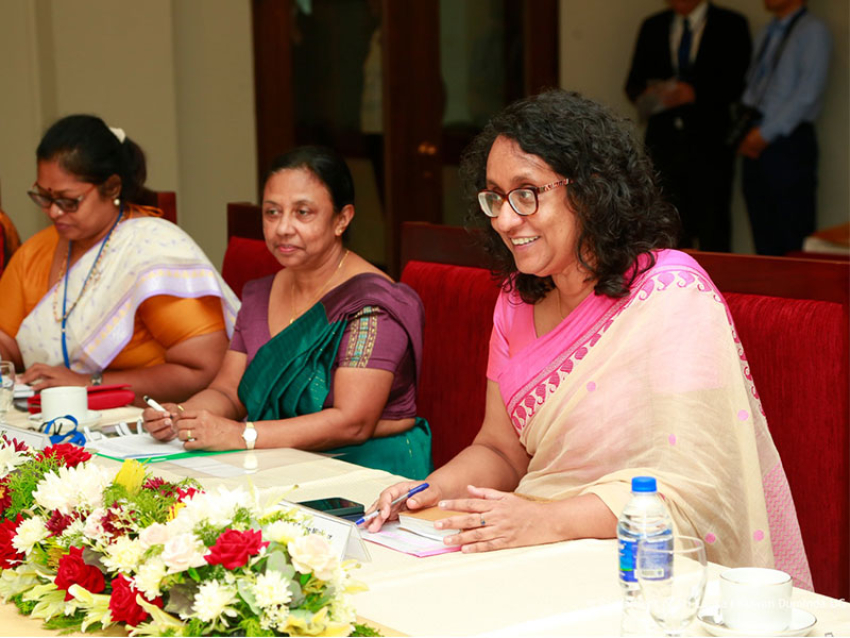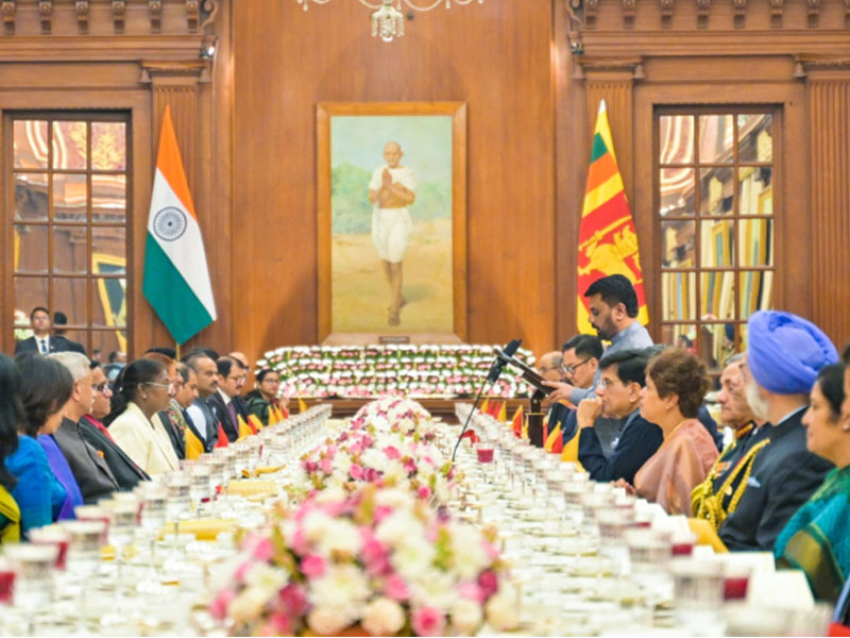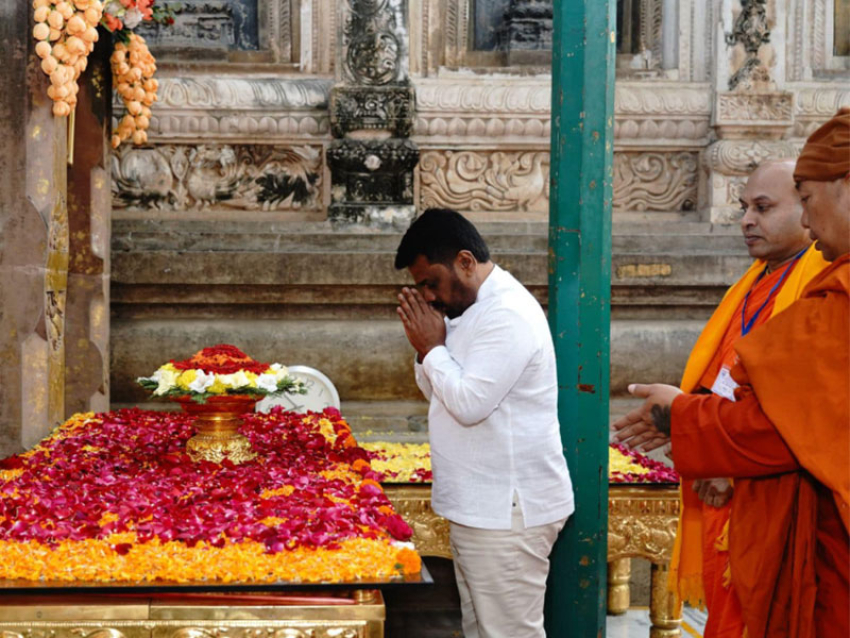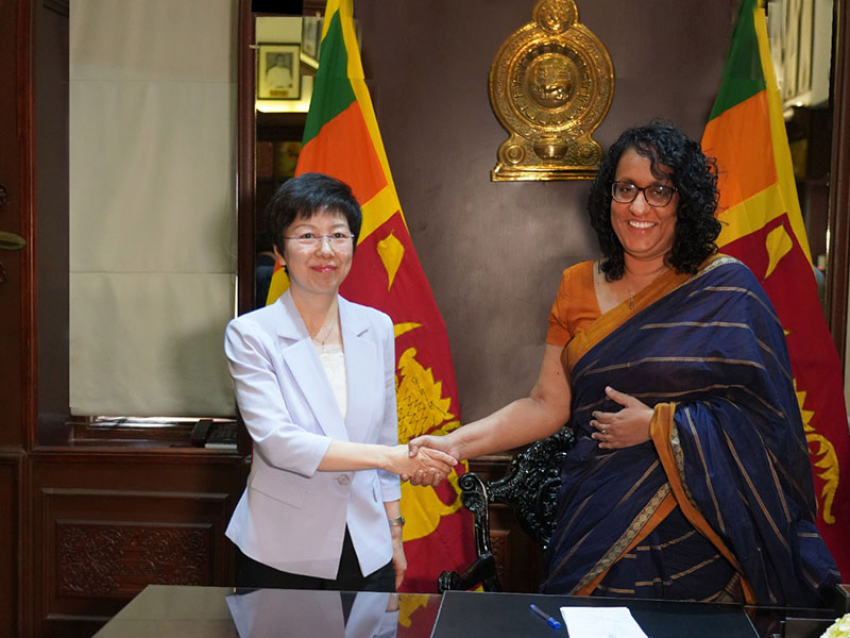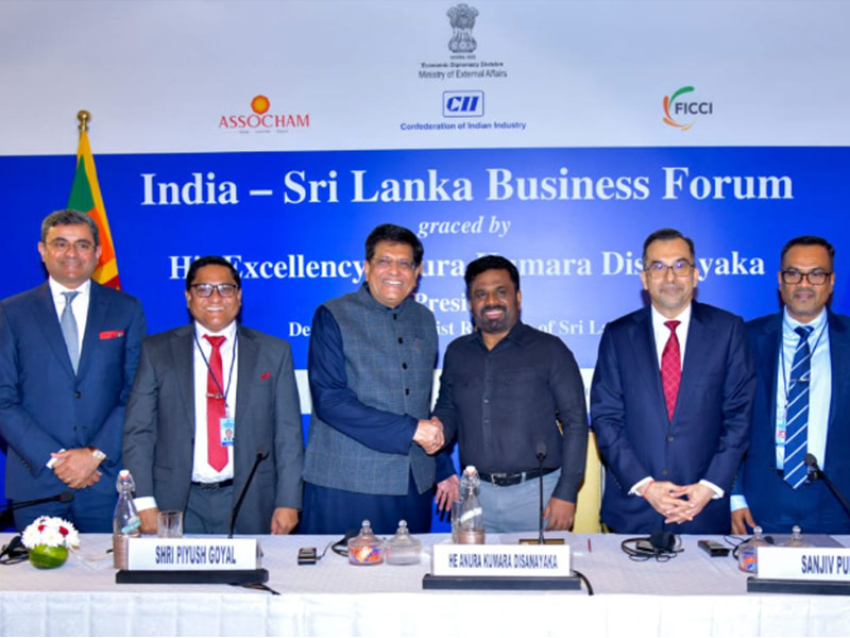These bonds go back to time immemorial; definitely more than 2500 years, the least. India had given us the gift of Buddhism, which gave rise to a flourishing Buddhist civilization in the island more than two millennia ago, and the influence of Hinduism was weaved into our socio-cultural fabric over the centuries of movement of people and of interactions.
Along with these religions, literature, languages, architecture, sculpture, an agrarian economy etc. developed in Sri Lanka. Our Sri Lankan heritage, therefore, essentially have links to India. This historical evolution, religious and cultural bonds together with economic activation were the foundations on which our relationship grew. Our contemporary relationship is very cordial. We have excellent diplomatic ties; interactions between our leaders have been extremely close; and the people to people contacts between our two countries is and have always been vibrant.
The largest number of tourists to Sri Lanka are from India, and there is great enthusiasm for Sri Lanka among the Indian intelligentsia and Think Tanks. So it is in this positive environment, that I too have joined the President on his visit to India. I am particularly pleased to be here this evening at the India Foundation. Let me provide you with a brief overview of the latest political developments in my country. At the Parliamentary Elections held on 14th November, the National People’s Power obtained 61.56% of all votes. This mandate is historic. Under the present electoral system, no party has ever secured such a high number of representatives with a two third majority under a single mandate.
Apart from this quantitative value, its qualitative value is monumental. It is the first time, a single political entity, has won confidence across the island including the Northern and Eastern Provinces and the hill country. It is this what makes it a people’s mandate from all Provinces across ethnicities and communities. It is evident that despite their diversity in ethnicity and religion, the people of Sri Lanka came together for a shared purpose and united behind a common goal. This unity displayed during the elections signifies a powerful moment in building national harmony, which the people of our country have long yearned for. This trust will be upheld. Governance will continue responsibly, prioritizing the well-being of the people and striding towards a new political culture in the country.
The policy of the National People’s Power government will focus on building national unity, reestablishing trust in institutions, safeguarding democracy, ensuring the supremacy of law and the independence of the judiciary, stabilizing the economy, driving economic growth, eradicating poverty, and putting social protection networks in place. As a democratically elected government with a strong mandate, we understand that democracy is not about uniting all people under a single party or a single ideology. The essence of democracy lies in the coexistence of diverse political ideologies and groups. It thrives on the presence of political factions with varying economic and political perspectives. As a democratic state, we embrace multi-party politics as a core principle of our democratic framework.
When we took office, we were aware of the depth and scale of the economic challenges that Sri Lanka is facing. Our economy was caught in a severe crisis but in a gradual path to recovery. Our economic strategy is centred on three key pillars; achieving rapid growth and expansion in the production of goods and services in our country, involving the people in every aspect of economy, and all citizens coming together to generate significant national wealth. Our present visit to India is to reinforce our age-old relationship for the betterment of our two peoples. While thanking India for the unprecedented support that it extended to us during the economic crisis and to the subsequent debt restructuring programme, I am certain that you would continue to assist us in our economic recovery and quest for development.
In this context, we are pleased to continue our discussions on the ongoing as well as proposed bilateral initiatives for the benefit of our countries. Given the geographic proximity of the two countries, the strategic and security interests and concerns are closely interlinked and security and defence cooperation is a pivotal aspect of our relationship. We are friends with all and share a close bond of friendship with our neighbour. We understand the importance of India’s security and geopolitical concerns and reassure that Sri Lanka will not permit its territory to be used in any manner inimical to the security of India as well as towards regional stability.
In this regard, Sri Lanka will continue to have an open, transparent dialogue with India. I also emphasize the need for Sri Lanka and India to work together on global issues such as terrorism and climate change for which regional and multilateral approaches are required. As we all are aware, a single country or nation individually cannot win the war against these two problems. Our two countries will continue to work together in taking forward our close partnership, demonstrating the highest level of cooperation. The responses that we have received in that regard during this visit have been extremely encouraging and pleasing. I leave India with a warm feeling of brotherhood, enhanced friendship and neighbourliness.
Thank you.




